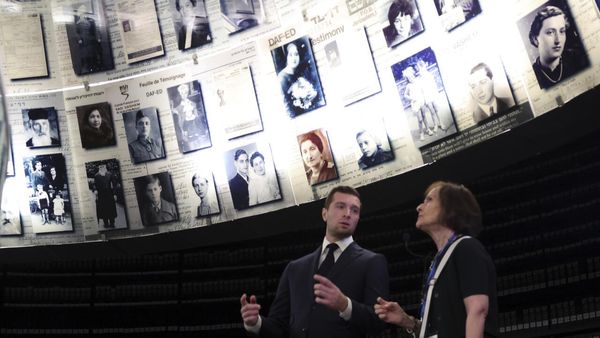Structural flaws in the hospitality industry are leading to many workers feeling disrespected and undervalued, a new University of Queensland Business School report has found.
Twelve per cent of the nearly 400 workers surveyed Australia wide said they were paid below the legal minimum hourly wage and 40 per cent of the respondents said they did not receive entitled breaks while on shifts.
While more than half said they received benefits at work other than pay, many said this came in the form of free food and drinks and unpaid leave, rather than more traditional benefits like childcare and healthcare.
Perhaps most worryingly, more than 70 per cent of the workers said they had experienced verbal or psychological abuse in the workplace, with bullying, sexual harassment and racial abuse also prevalent.
The report's author Richard Robinson said it made for "sobering" but "not surprising" reading.
"I think what we're seeing at the moment is that the negatives of working in hospitality are really far outweighing the positives."
Dr Robinson, who worked as a chef prior to entering academia, said there were a number of "structural issues" within the industry that have been laid bare by the struggles and staff shortages still being caused by the COVID-19 pandemic.
Those include a "grey economy" of under-the-table payments, an overworked and thinned labour market, and the normalisation of abusive behaviours from "customers or management".
Industry 'disruptors' ensuring there are fewer stable jobs
Dr Robinson said it is "the responsibility of organisations" to provide safe workplaces, but all too often protocols are not in place.
"I was doing an interview with a woman, a university student who had just quit hospitality after three years. She was obviously passionate about it, and she loved it, but she had been persistently sexually harassed and abused by her managers and mistreated and even assaulted behind the bar," he said.
"She was working with a really large employer ... I asked her: 'Are there any protocols in place in your organisation or any training in terms of how you might handle abuse or harassment, either from customers or managers in the workplace?'
"She said there wasn't, and she'd been working with this group across multiple properties for two or three years.
"That astonished me."
Another factor Dr Robinson is worried by is the growing presence of "disruptors" or "gig players" in the industry.
"What those disruptors have done is actually take secure jobs away from established businesses and sort of dispersed them and fractured them," he said.
"They make zero-contract and piecework the norm in hospitality … this undermines secure work."
A little respect
Sunshine Coast restaurateur Jeremy Khoo said prior to opening his own business he experienced "unfairness" in the workplace.
"Earlier in my career with one of my first few employers, there was a really deep cultural expectation to work longer than what you're rostered despite that being not paid for that extra amount," he said.
"I'm happy to finish what is needed and help everyone out, you know, and this is fairly common … it's just that expectation of being paid for your work as well."
Mr Khoo admitted it has been a few years since he worked as an employee, and said he believed the industry was getting more caring of its employees.
"I would say, yes, it is changing, I've definitely seen more positive change — whether or not that's happening fast enough is another argument in itself," he said.
"I do see that the culture has improved since when I was working probably a decade ago as an employee, so I have seen I have seen positive change, you know, basically more respect."
But that respect is not being felt everywhere – only 48 per cent of workers who took part in the survey felt they we treated with dignity and respect in their current or past workplace.
Similarly, only 43 per cent of workers felt they were given supportive feedback at work.
Dr Robinson said with industry so affected by the tumult of the pandemic, now is a great time for it to become a better sector for its workers.
"I think even the industry is starting to realise that the international labour market can act as a little bit of a buffer for seasonal peaks or sharp short-term needs … but it really can't be relied upon in the long term as the supply line for workers for the industry — I think they're starting to acknowledge that," he said.
"In other words, there really has to be a deeper investment in the local labour talent pool that we have."
United Workers Union executive director Godfrey Moase said the report could be underestimating the proportion of hospitality workers who have been underpaid or experienced abuse.
"A lot of people just exit, rather than try and fix it, rather than reporting it in, rather than taking the time to participate in the survey around hospitality – they'll just leave."
"They'll leave because they're not getting paid properly, when they've got a wage cut, whether legal or illegal, or they're subjected to just some abuse from members of the public.
"They'll just leave and then the issue will never get resolved one way or another."
Mr Moase said the findings reflected a widespread lack of "respect" for workers in the hospitality industry.
"The main issue that we have in hospitality is the fact that workers are not respected enough – they're not respected enough in terms of pay," he said.







